Why we love Bolivia
A land of many layers. Rugged, colourful and full of mystery, where salt-streaked flats meet ancient Inca ruins on the floating islands of Lake Titicaca. Sleep under the Uyuni desert stars and experience the city rhythms of indigenous traditions. This guide shares the essentials for exploring one of South America’s most mesmerising lands.
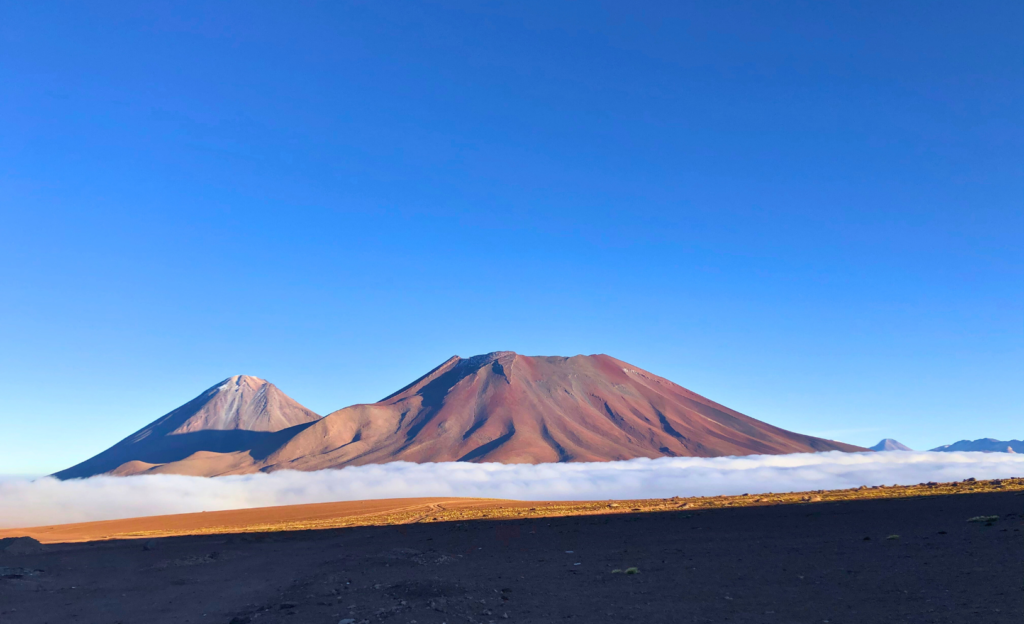
Entry Requirements
English passport holders will not need a visa for tourist visits of up to 90 days in one calendar year. On arrival, immigration usually issues a 30-day entry stamp; you can request an extension at a local immigration office if you plan to stay longer.
Your passport must be valid for at least six months from the date you arrive in Bolivia and should have at least two blank pages. Always check that you receive an entry stamp at the border – if you don’t, you may face fines or delays when leaving the country.
If you are crossing a land border, be sure to collect both the exit stamp from the country you’re leaving and the entry stamp into Bolivia. At some crossings, particularly from Argentina, Bolivia no longer stamps passports, but you must still register your exit with Argentine immigration so that your entry is recorded electronically in Bolivia.
Travellers from the United States and some other countries do require a visa – check your local Bolivian consulate’s website for the most up-to-date guidance.
If you’re unsure about your visa status or need advice on extensions, our Operations team will be happy to help.
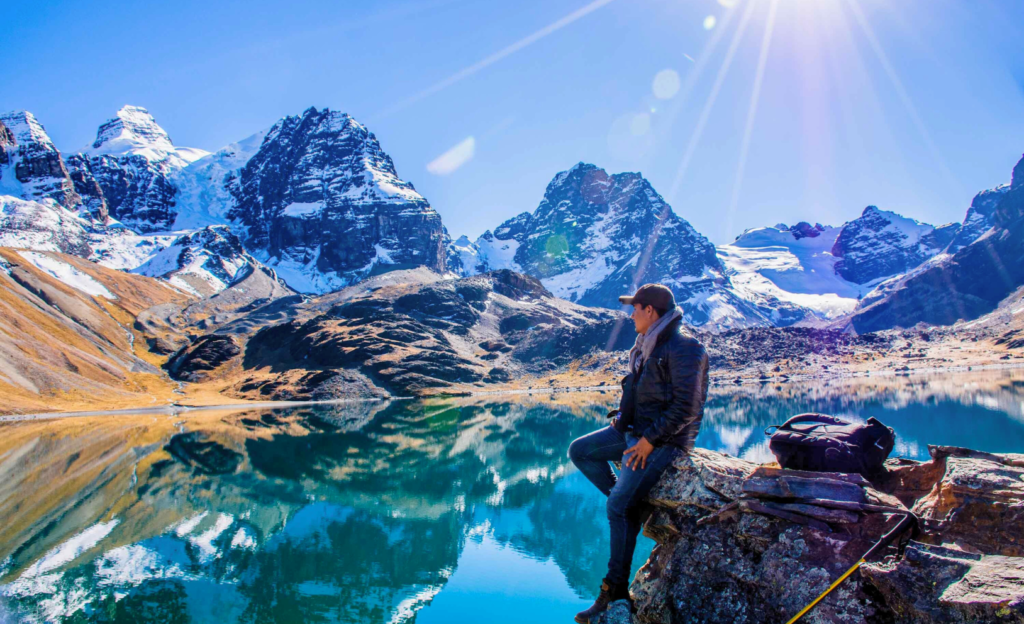
Health and safety
We aren’t certified to give medical advice so we always recommend you consult your GP or a travel health clinic before you go. They can advise on vaccinations you may already have and any extra ones you might need for Bolivia. You can also check this website for up-to-date guidance and tips on bringing medication into the country.
Staying safe: Bolivia is generally a welcoming and safe country to explore, but as with anywhere, it’s worth staying alert:
Crowded areas: Take extra care in busy spots like markets, bus terminals and urban centres where petty theft and pickpocketing can occur.
Travel advisories: Keep an eye on any guidance from your embassy or consulate and follow local advice if conditions change.
Altitude: Many destinations, including La Paz and Uyuni, are at high altitude. Take time to acclimatise, stay hydrated and avoid overexertion in the first few days.
Outdoor activities: If trekking or visiting remote landscapes such as the salt flats or the Amazon, go with trusted guides, pack plenty of water and be prepared for rapidly changing weather.
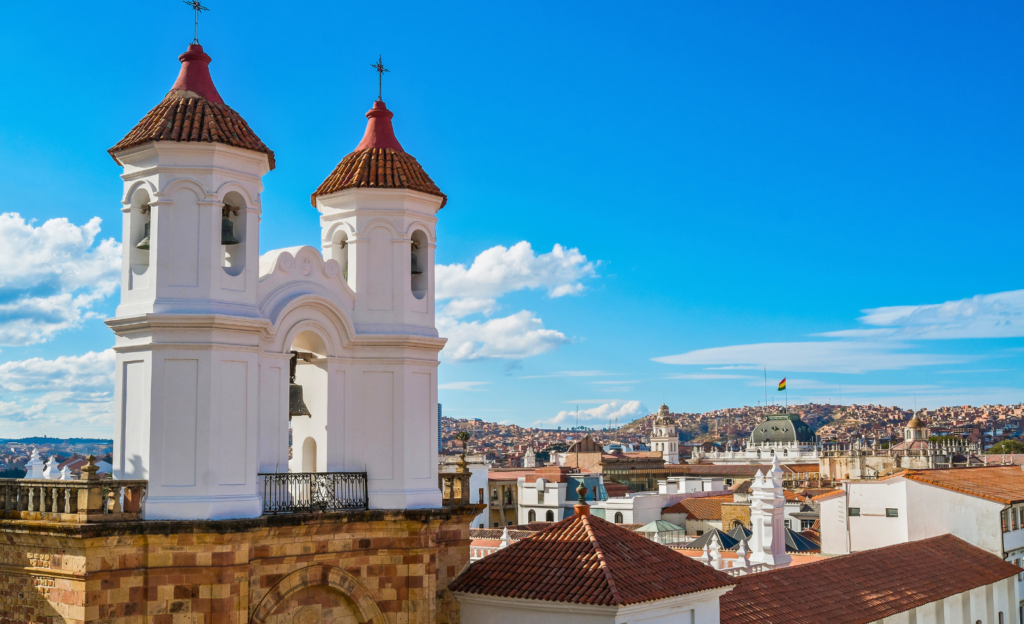
Climate and packing tips
Always carry overnight essentials and medication in your hand luggage in case of delays or lost luggage. Bolivia’s landscapes range from icy highlands to steamy rainforests, so pack for varied conditions:
Highlands (La Paz, Uyuni, Sucre)
Climate: Sunny but cool to mild by day, often cold at night.
Pack: Warm layers, fleece or thermals, waterproof jacket, sturdy shoes or boots, hat, sunglasses, sunscreen and altitude sickness medication.
Tropical Lowlands (Amazon Basin, Rurrenabaque)
Climate: Hot and humid year-round; heavy rain from November to March.
Pack: Lightweight quick-dry clothes, long sleeves and trousers for insect protection, repellent, mosquito net and swimwear.
Salt Flats and Deserts (Uyuni region)
Climate: Dry and sunny by day, cold at night.
Pack: Warm evening layers, sturdy shoes, sunglasses, sunscreen and a scarf for wind protection.
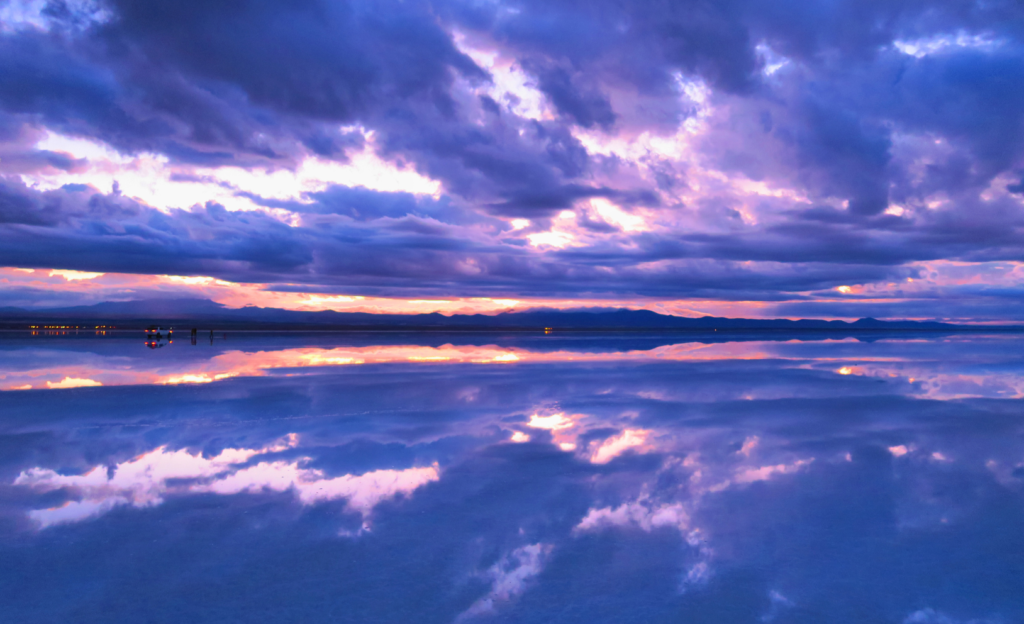
Laws and Customs
Here are our top tips for respecting Bolivia’s laws and customs:
– Always carry identification – a photocopy of your passport is usually fine, but keep the original stored safely in your hotel. Police may ask to see ID at any time.
– Show respect for Bolivia’s rich indigenous heritage. Be mindful of local customs, traditions and beliefs, particularly when visiting sacred sites or indigenous communities.
– When exploring Bolivia’s incredible landscapes – from the Amazon rainforest to the Andes – do your part to protect them. Minimise waste, avoid single-use plastics and stick to marked trails.
– Always ask before taking photos of people or religious ceremonies. Some communities consider it intrusive or disrespectful.
Tipping
In restaurants, a service charge is often included in the bill, but it is polite to leave an extra five to ten per cent in cash for good service. Guides and drivers usually receive ten to fifteen per cent of the total cost, while hotel staff such as porters or housekeeping often get one to two US dollars per day. Taxi drivers are not generally tipped unless they help with luggage or go out of their way for you. It is worth keeping small notes and coins handy, as change can sometimes be tricky to get.
Money matters
Bolivia’s official currency is the Bolivian Boliviano (BOB). You can exchange foreign currency at banks, exchange offices or ATMs on arrival. Major credit cards are widely accepted in larger cities and tourist hubs, but cash is essential for smaller shops, local markets and rural areas where card facilities are limited.
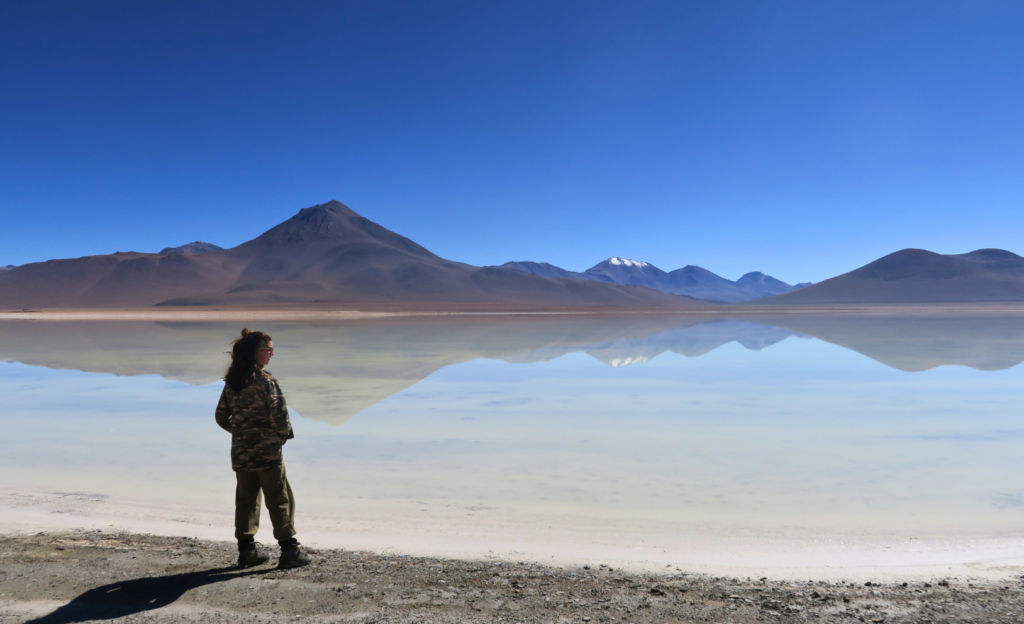
Getting around
Domestic flights: The quickest way to cover long distances between major cities. If we’ve booked your flights you’ll receive your ticket in advance, but you’ll still need to check in online or via the airline’s app 24 hours before. Arrive at the airport two hours before domestic flights and three hours for international.
Taxis and ride-sharing: We can arrange transfers to and from airports or between hotels and regions. In cities, ride-sharing apps like Uber are reliable and often the easiest option.
Trains: Routes are limited but scenic, offering a slower journey through Bolivia’s dramatic landscapes. Our team can organise these for you.
Boats and ferries: Ideal for exploring the Amazon Basin or Lake Titicaca. These journeys often feel like part of the adventure – we can arrange them if you’d like to include them in your trip.
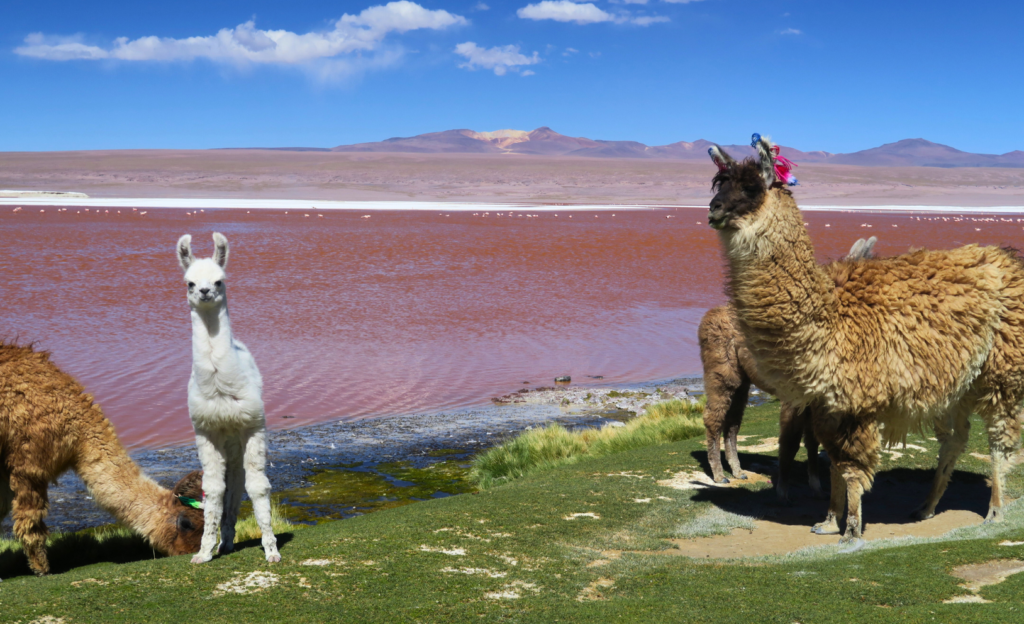
Practicalities
Plug type: Bolivia uses Type A and Type C plugs. These are the two-pin styles you’ll often find in much of South America, so bring an adapter.
Flights and Time Zone: There are currently no direct flights from the United Kingdom to Bolivia. Most routes include at least one stopover in cities such as Madrid, Miami or São Paulo. Bolivia operates on Bolivia Time (BOT), which is GMT -4. The country does not observe daylight saving time, so the time difference remains consistent throughout the year.
Language: Spanish is the official and most widely spoken language in Bolivia. You will also hear indigenous languages such as Quechua, Aymara and Guarani, particularly in rural areas and among indigenous communities. In larger cities and tourist hubs, some English is spoken, especially in hotels, restaurants and by guides, but it’s always helpful to know a few Spanish phrases.
Here are a few useful Spanish phrases for your travels:
Hello – Hola
Thank you – Gracias
Please – Por favor
Yes / No – Sí / No
How much is this? – ¿Cuánto cuesta?
Excuse me / Sorry – Perdón / Disculpe
I need help – Necesito ayuda
Where is the bathroom? – ¿Dónde está el baño?
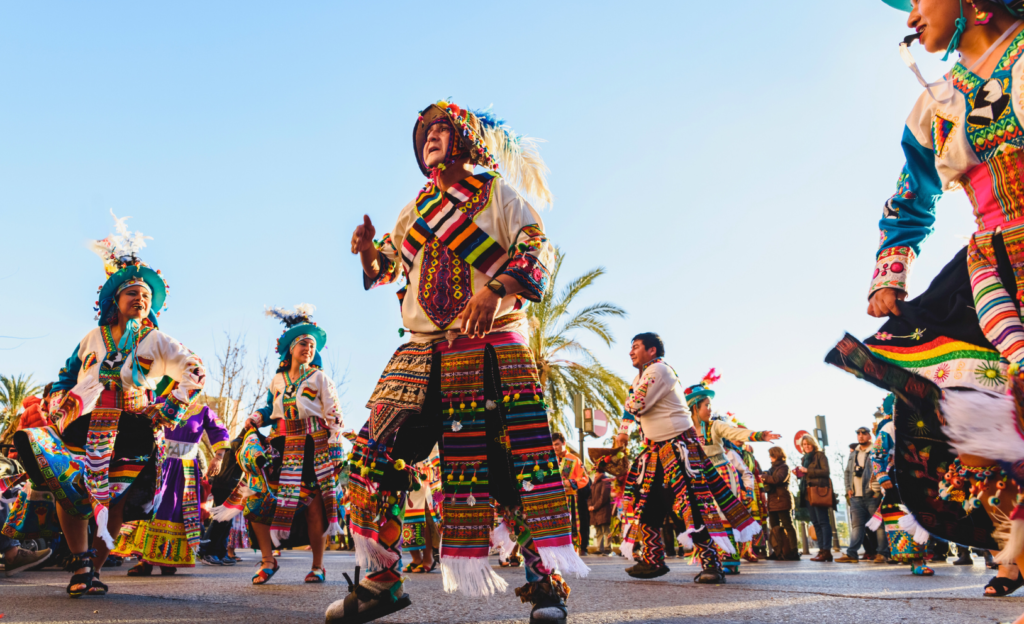
Food and drink
Bolivian cuisine reflects the country’s rich mix of indigenous traditions and Spanish influence, shaped by its own topography. Here are a few dishes and drinks to look out for on your trip:
Salteñas: Savoury pastries filled with spiced meat, vegetables and a rich broth – Bolivia’s answer to the empanada.
Anticuchos: Skewers of marinated meat, often beef heart, grilled and served with potatoes and a punchy peanut sauce.
Pique a lo macho: A hearty plate of beef, sausage, peppers and potatoes, often topped with a fried egg.
Quinoa Soup: A warming highland staple made with locally grown quinoa and vegetables.
Api: A sweet, spiced purple maize drink, served hot and perfect for chilly evenings in the highlands.
Chicha Morada: A refreshing purple corn drink, lightly sweetened and spiced – a favourite across the country.
Keep connected
Most travellers use a local Bolivian SIM or an e-SIM to stay connected. SIM cards are available at major airports, as well as in mobile shops in larger cities. The main providers in Bolivia are Entel, Tigo and Viva. Alternatively, we recommend purchasing an e-SIM in advance through services like Airalo, which allows you to get connected as soon as you land.
